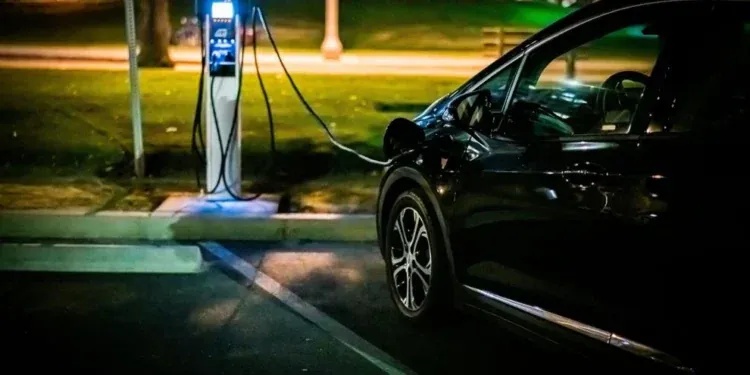Michigan’s U.S. Senate candidates are highlighting their records on labor and economic policy, while also holding contrasting views on the role of electric vehicles.
Democrat Representative Elissa Slotkin’s labor policy approach revolves around promoting domestic manufacturing. According to her campaign page, her primary focus is on creating jobs with dignity, bringing back supply chains to America, and safeguarding workers’ rights.
In Congress, Slotkin supported and voted in favor of several key initiatives aimed at boosting the American economy and supporting domestic manufacturing. This includes her vote for the $2.2 trillion Build Back Better Act, which seeks to create manufacturing jobs and improve American infrastructure. She also championed the Bipartisan Infrastructure Law, which focuses on strengthening the country’s infrastructure. In addition, Slotkin supported the CHIPS and Science Act, which aims to promote domestic manufacturing of microchips.
Slotkin has garnered support from numerous unions, including the Utility Workers Union of America, the Building Trades Council, and the Michigan Education Association. She has received dozens of union endorsements, highlighting her broad appeal among various labor groups.
Slotkin is a strong advocate for the Biden administration’s efforts to promote electric vehicles. She believes that it is crucial to take proactive measures in order to create jobs in the automotive industry and secure the supply of electric vehicle materials. According to Slotkin, it is more beneficial for Michigan to be self-reliant in these areas rather than depending on China.
In July, Slotkin emphasized the importance of electric vehicles (EVs) in the future of automobiles. She acknowledged that while EVs may not be a preferred choice for everyone, their significance cannot be denied. Slotkin highlighted the efforts of China, Europe, and Mexico in dominating the EV market and emphasized the need for the United States to take an active role in its development. She stressed that building EVs in America is crucial for both economic and national security reasons.
Republican former Representative Mike Rogers prioritizes labor policy that promotes innovation and reduces government regulations, especially for small businesses.
During his tenure as a state senator from 1994 to 2000, Rogers actively championed various causes such as antitrust laws, emergency grants for veterans, and initiatives aimed at reducing regulations for small businesses. His unwavering support for these measures demonstrated his commitment to promoting fair competition, assisting veterans in need, and fostering a conducive environment for small business growth.
During his tenure as the U.S. representative for Michigan’s 8th congressional district from 2001-2015, Rogers actively voted in favor of the Economic Growth and Tax Relief Reconciliation Act, a legislation that effectively reduced income taxes. Similarly, he lent his support for the Jobs and Growth Tax Relief Reconciliation Act, which aimed at bolstering tax deductions for small businesses. Additionally, Rogers advocated for initiatives that aimed at fortifying American energy independence.
Rogers has garnered the support of influential organizations in Southeast Michigan. The Southeast Michigan Chamber of Commerce, a collective of small business owners and leaders, has endorsed his candidacy. Additionally, the Associated Builders & Contractors of Michigan PAC, a prominent statewide trade association representing construction industries, has also thrown its support behind Rogers.
Rogers argues that the government’s mandate to promote electric vehicles will have negative consequences for the industry. He believes that a rapid transition to electric vehicles in Michigan’s auto industry will only worsen the existing issues.
In July, Rogers emphasized the need to end the overreliance on China for the global supply of batteries used in electric vehicles. With China controlling, sourcing, or processing more than 80% of these battery cells, the conversion to electric vehicles not only limits choices but also makes the US excessively dependent on China. Rogers believes that it is crucial to allow the market to drive the auto industry, rather than being dictated by forced measures.
Slotkin’s support for the EV battery manufacturing plant in Big Rapids, which has strong ties to the Chinese Communist Party, was also criticized by him.
According to the latest polling data, Slotkin is currently leading Rogers with a 47% to 41% advantage.



